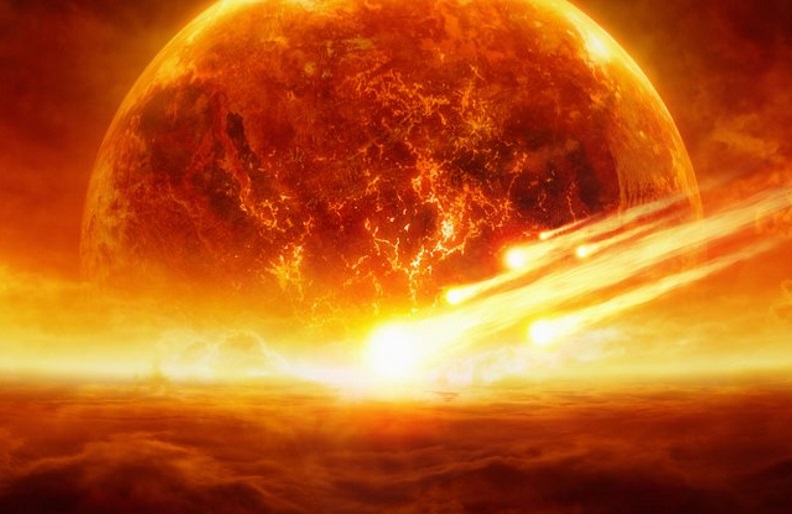The hype over the Great American Eclipse on 21 August is certainly reaching fever pitch now that we’re less than ten days out, and we hope that you are already prepared.
But where there’s hype, there’s also conspiracy theories. Like the one that’s been gracing tabloid headlines all week – that this eclipse is the precursor of a collision with an imaginary planet called Nibiru.
For the uninitiated, the non-existent Nibiru (sometimes called Planet X) is a planet-sized object supposedly hurtling through space towards an inevitable smash into our own planet.
NASA already told the world back in 2012 that “Nibiru and other stories about wayward planets are an Internet hoax,” but here we are again. So, what’s going on?
“Astronomy-inspired apocalyptic conspiracy theories hitch their wagon to whatever is happening in astronomy this year,” astronomer Michael Brown from Monash University in Australia tells ScienceAlert.
“It’s the eclipse now, a few years back it was a planetary alignment, and two decades ago conspiracy theorists were excited by Comet Hale-Bopp.”
Hale-Bopp was discovered in 1995 and quickly became one of the brightest comets observed in the 20th century. Its appearance sparked both apocalyptic and UFO theories, and tragically also triggered a mass suicide of 39 people in the Heaven’s Gate cult.
That comet’s first appearance actually coincides with the origins of the whole Nibiru thing – the first time online newsgroups heard about this particular ‘wayward planet’ was from a woman called Nancy Lieder in 1995.
Except her cataclysmic prediction was actually slated for 2003. When nothing happened, the date got pushed to 2012, which some may recall as the year of another apocalypse bust, this time connected with the ancient Mayans.
“I do wonder if media interest in these stories is about mockery,” says Brown, noting that since readers enjoy the ridiculousness of these theories, the tabloids rake in the clicks even if they don’t actually believe in the content.
“Even some of the British tabloids frame this story as a conspiracy theory by a numerologist, whereas they sometimes pitch pseudoscience as the work of plucky self-trained experts.”
It’s understandable that this year’s eclipse, with its path of totality stretching across the entire United States, has caused such a stir in both scientific and pseudoscientific circles.
With the technology we have, and with the crazy viewership numbers, it is likely to become the most documented solar eclipse humans have ever experienced.
“Images and data from potentially as many as millions of people will be collected and analysed by scientists for years to come,” Carrie Black from the US National Science Foundation said last month.
Should we be worried about Nibiru? Absolutely not. Should we be worried about media outlets and believers going into a frenzy over Nibiru? That’s a more tricky line to toe, admits Brown.
“I doubt there’s a clean demarcation between harmless nonsense and dangerous conspiracy theories,” he tells ScienceAlert.
“Fortunately many astronomy-related conspiracy theories fall into the harmless nonsense category, but there are occasional grim exceptions, like the Heaven’s Gate cult.”
Let’s hope this year’s eclipse will only bring harmless fun and fascinating science, and no grim conspiracy aftermath.
In case you were wondering, the next total solar eclipses are going to be in 2019, 2020, 2021, and then again in 2024, the latter with a path of totality once again touching the United States.
We’re calling it now – you can expect more Nibiru headlines then.
This article was originally published by Science Alert.
